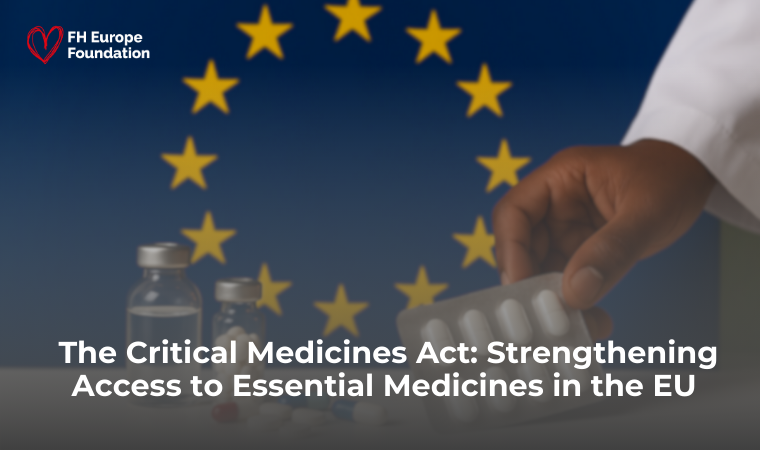
On March 11, 2025, the European Commission published its Critical Medicines Act proposal. This Act aims to make sure that important medicines are always available in the EU. It focuses on improving the availability, supply and production of these critical medicines (within the EU), especially for rare diseases and other essential treatments.
The CMA is part of a larger plan to strengthen the EU's healthcare system and make it more resilient to future crises. It includes measures to support important projects, improve supply chains, increase access to other important medicines (especially for rare diseases) and work with other countries to reduce reliance on single suppliers, aiming to address issues of some medicines not being available in certain markets.
This proposal marks a significant step toward ensuring that everyone in the EU has access to the medicines they need. You can read the full Critical Medicines Act proposal (PDF) or explore more details on the official EU website.
The Critical Medicines Act is vital for the FH Europe Foundation Community as it aims to ensure all EU citizens can access necessary medicines. This is especially important for those with rare diseases, who often struggle to get the treatments they need. By enhancing the supply chain and production of critical medicines, the CMA seeks to reduce shortages and make life-saving treatments available to those who need them most.
The key features of the Critical Medicines Act (CMA) for us:
These features aim to make sure that critical medicines are always available and that everyone in the EU can get the treatments they need.
How will it affect patients?
The Critical Medicines Act (CMA) will have several direct benefits for patients:
The Critical Medicines Act (CMA) includes a list of medicines considered essential for the health and well-being of EU citizens. This list is known as the Union list of critical medicines. It contains human medicines whose continued supply is a priority in the EU. The list is managed by the European Medicines Agency (EMA), the Heads of Medicines Agencies (HMA), and the European Commission. We will share some more information about these in the next Newsletter.
The medicines on this list typically include:
Overall, the CMA is designed to ensure that patients across the EU can reliably access the medicines they need, improving health outcomes and quality of life. These measures also aim to ensure that patients have continuous access to essential medicines, even during global crises or supply chain disruptions
We know that the Critical Medicines Act is focused on the EU, but it highlights a need for everyone in our community to have access to essential medicines. Ensuring that life-saving treatments and medicines for rare diseases are available to all is crucial for improving health outcomes and quality of life. This Act serves as a reminder of the importance of reliable access to medicines for everyone, regardless of where they live.
If you want to know more about why the CMA has been proposed, it is in the context of the European Health Union, which seeks to ensure that all EU citizens have access to necessary medicines. It complements regulatory measures already proposed, notably the reform of EU pharmaceutical legislation.
Related links: